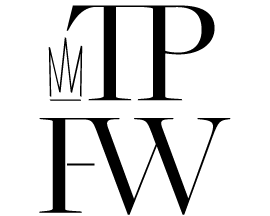Amanda GormanPoetLos Angeles, CAPhotos by Anna ZhangStory by Lauri Levenfeld
|
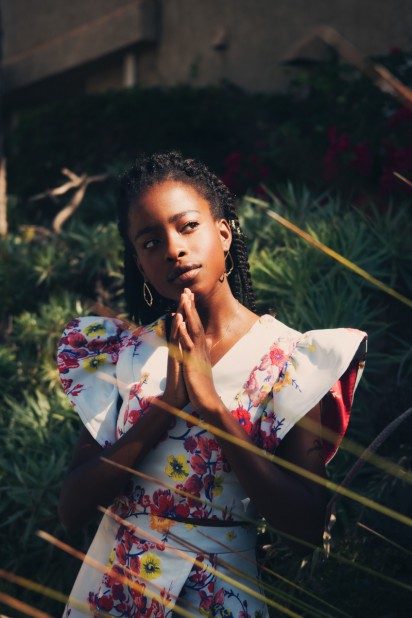 |
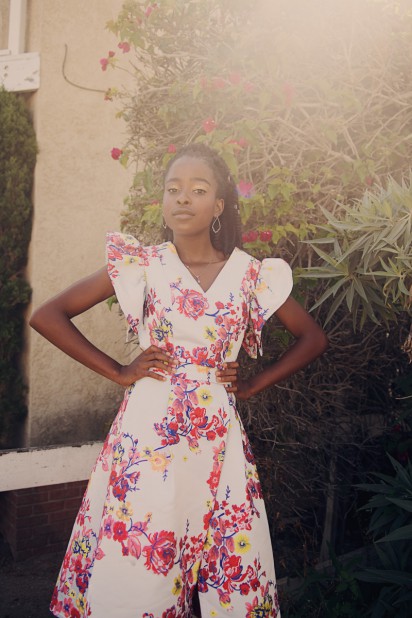 |
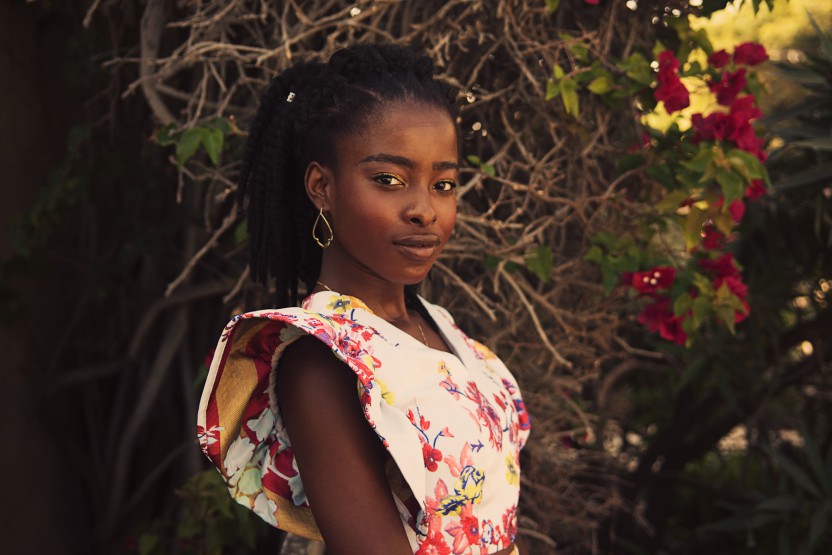 |
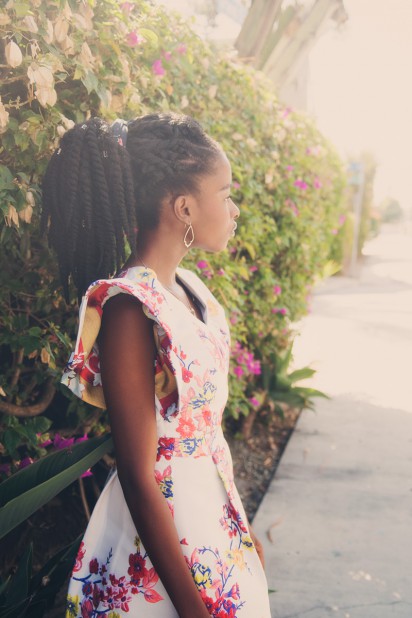 |
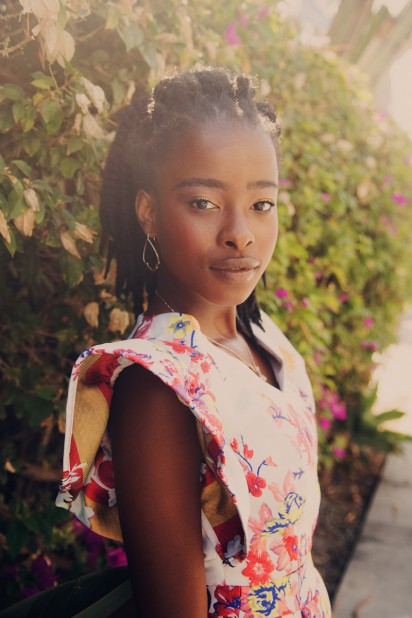 |
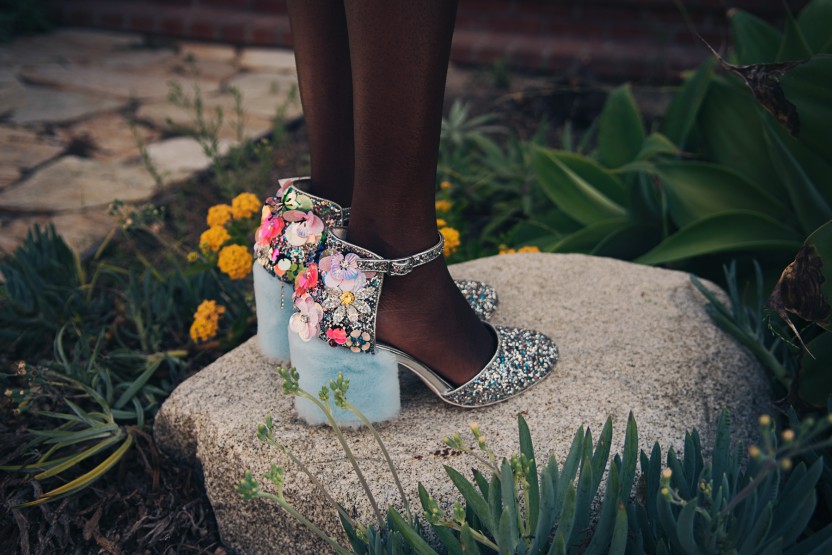 |
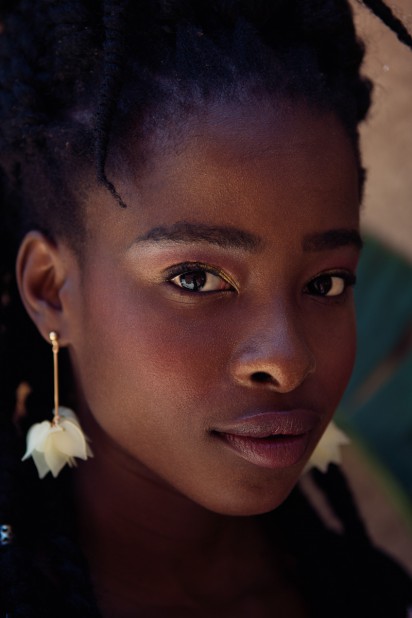 |
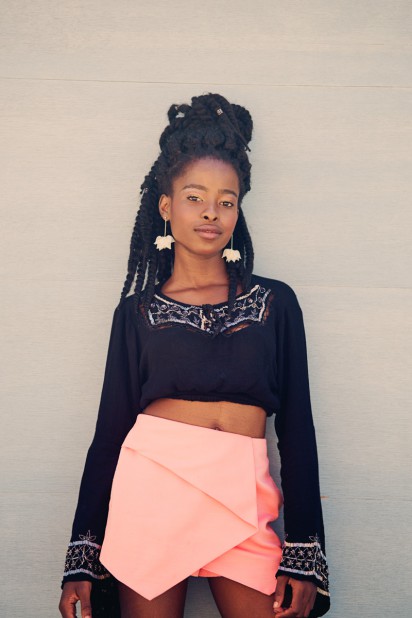 |
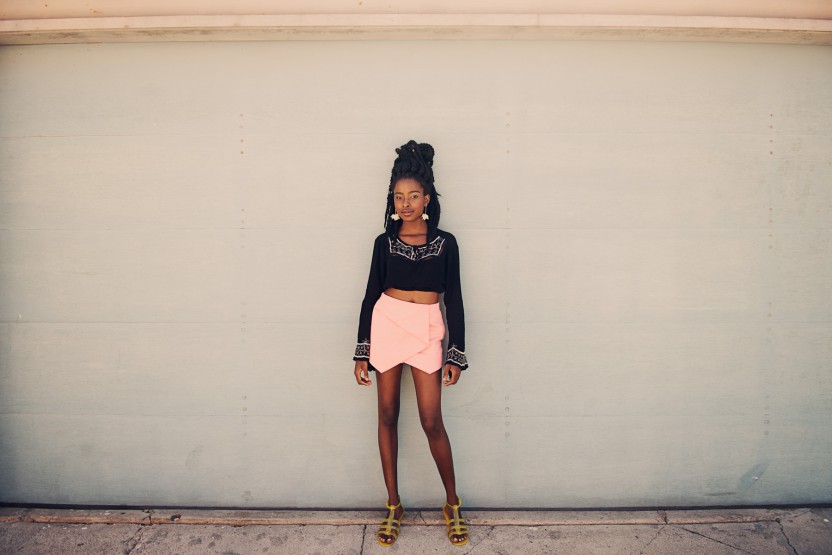 |
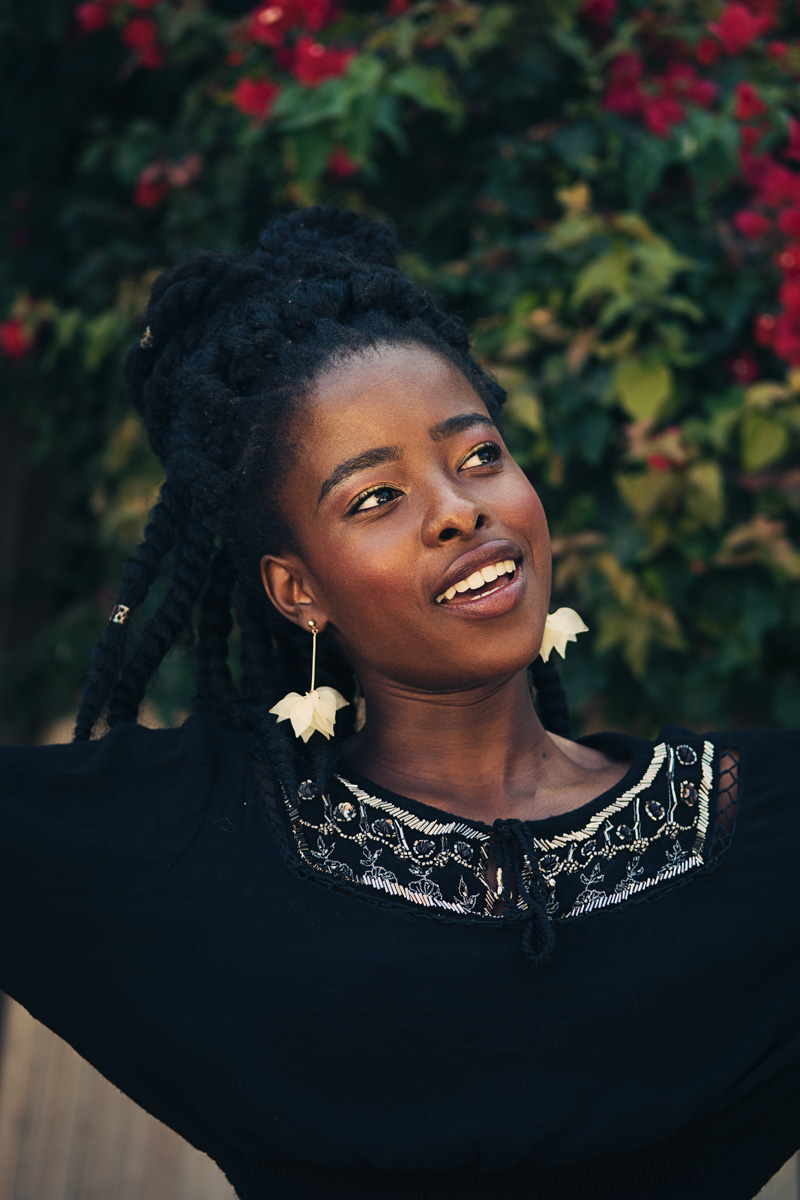 |
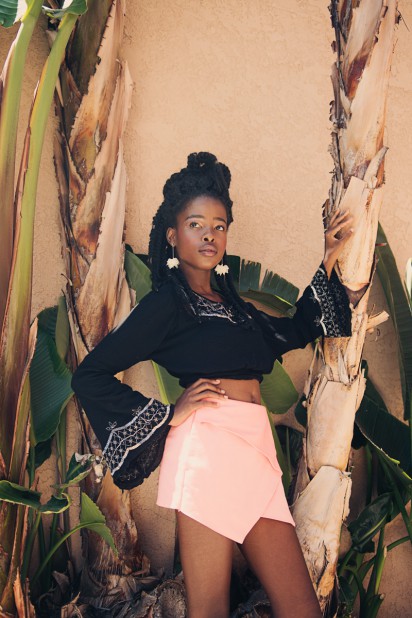 |
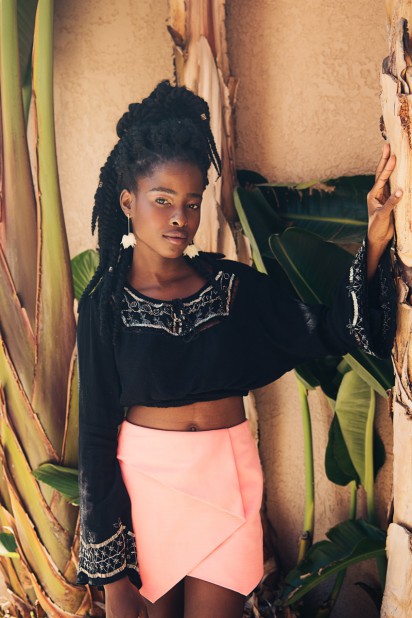 |
|
1. Who are you? What were you like as a child? My name is Amanda Gorman and I’m the first National Youth Poet Laureate of the United States. Haha I was quite the particular child! I had a speech impediment, so I expressed myself a lot through writing. I always felt like the ‘strange’ kid growing up, or the odd man(da) out–I liked sitting and pondering the sunset or digging up fake fossils. I knew I wanted to do something creative when I was older–I taught myself watercolors, a few chords on the piano and guitar, and wrote some songs. Eventually, I realized how much all this art connected to storytelling and poetry, and the rest is history.
2. What inspires your writing? How has poetry helped you to express your views? The fight for social injustice not only inspires my writing but my life’s work. Through poetry I can speak to both the world’s problems and it’s solutions, as well as the microcosms of conflict inside myself. I love writing poetry because it is innately cutting-edge; as a black female poet, every time I take the stage I have a new opportunity to defy limitations placed on the art, contributions, and leadership of creative women of color.
3. When did you write your first poem? Or favorite poem? What was the premise? Hmmm I wrote songs for a while. It was in 3rd grade, thanks to my teacher Shelly Fredman who is an author, that I began to respect |
myself as a writer and poet. She encouraged me to keep writing, even if I was off-topic (and, man, was I off-topic every time!). She’d make me peanut butter and banana sandwiches in shapes made by cookie cutters, and make sure I felt valued as a writer. It was in that class that I wrote my first set of poems (untitled), which covered how alone and strange I felt. I wasn’t part of the clique at my school, I got along better with my teachers than I did students my age, and I didn’t feel like being a cerebral, day-dreaming-to-the-point-of-danger skinny black girl with a speech impediment was helping my popularity any. But I found power in writing about being outside the ‘in-crowd’, and I kept writing ever since.
4. Tell us about One Pen One Page? How did you dream up this organization and bring it to life? OPOP is an organization that provides creative writing programming and publishing opportunities to underserved youth. My mom is an English teacher at an inner-city public school, and it was after seeing the role of literacy in the lives of students of color that I realized how critical it was. I started teaching some creative writing workshops at my mom’s school when I was 15, and I got funding from the HERlead program to add a reading rewards initiative, leadership summit, and online blog to OPOP’s work. Any girl who wants to change the world should apply to HERlead! |
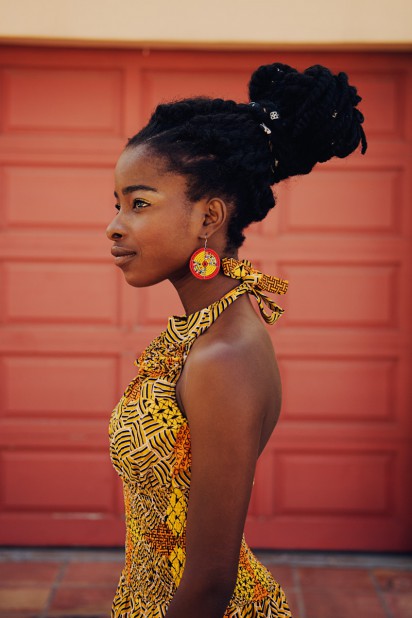 |
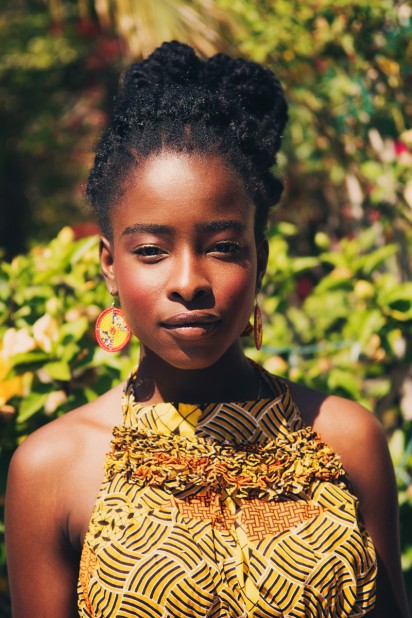 |
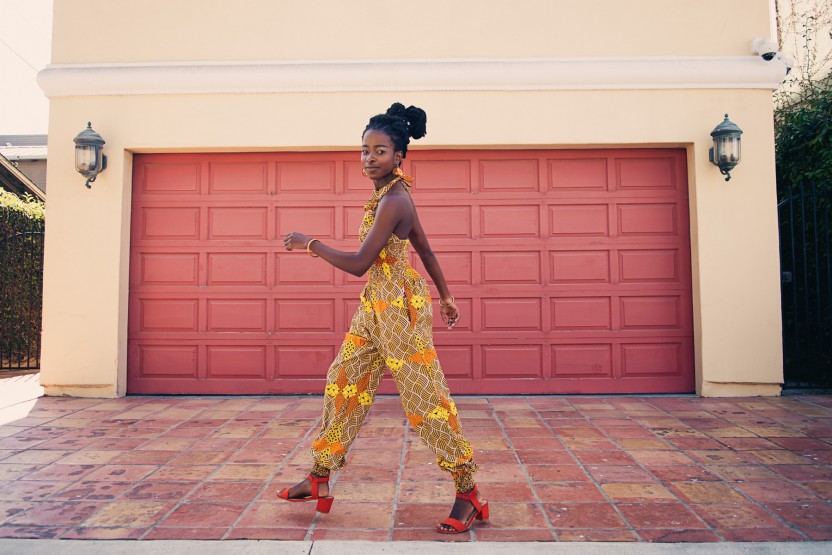 |
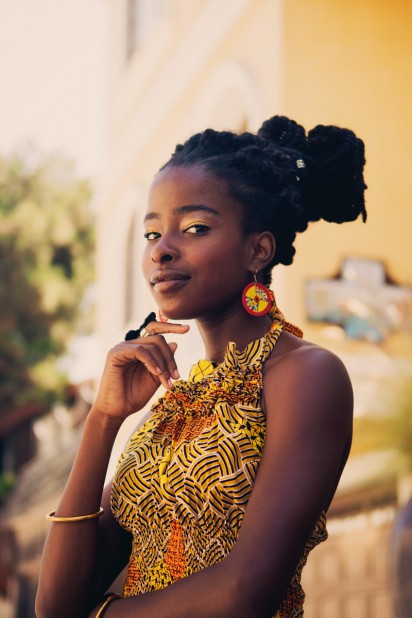 |
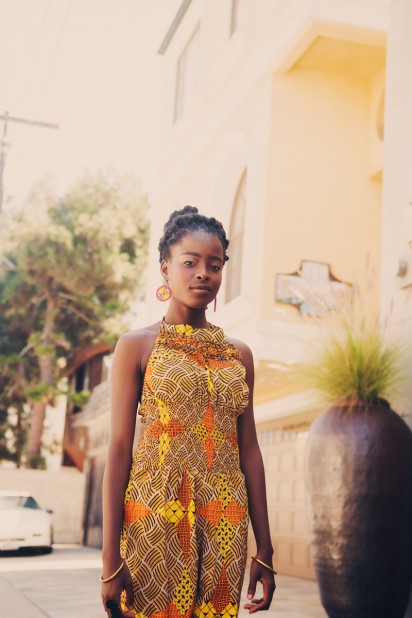 |
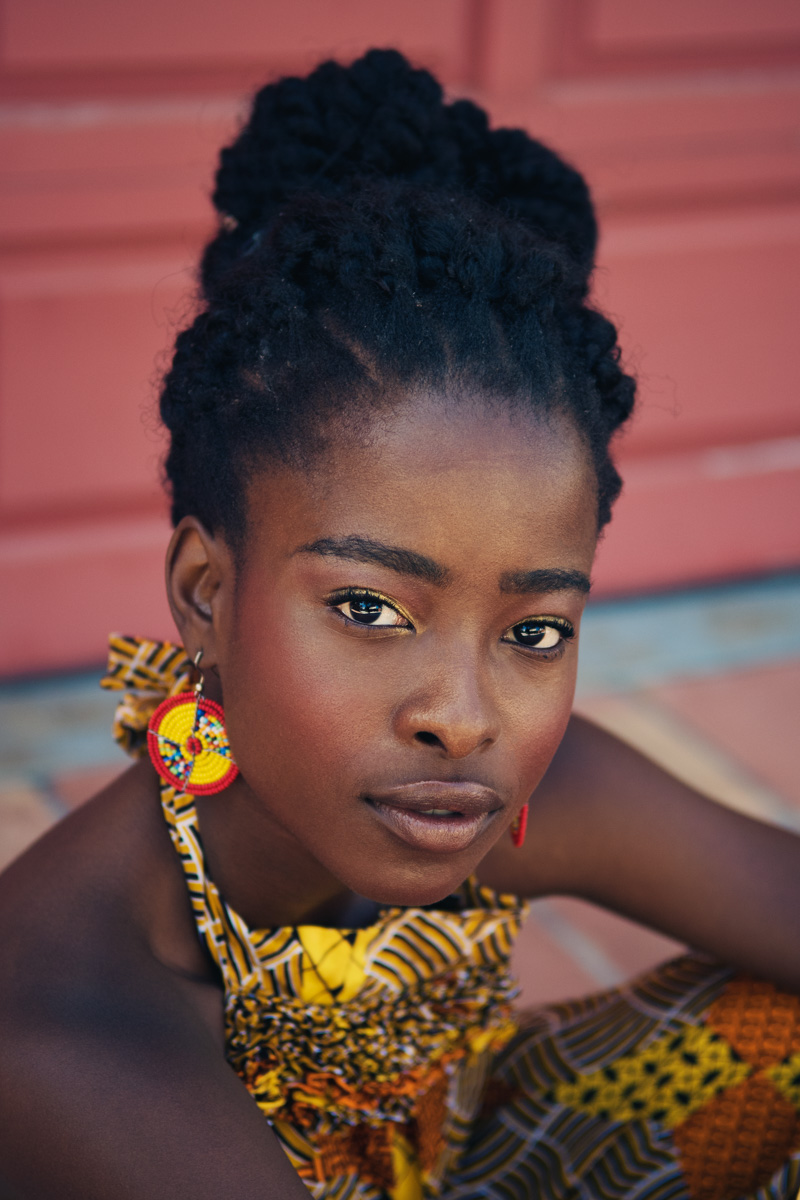 |
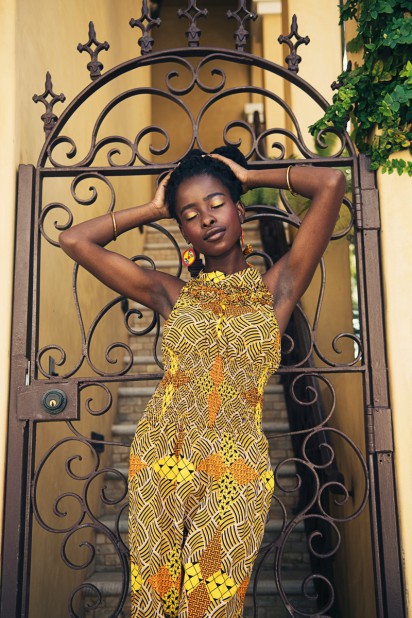 |
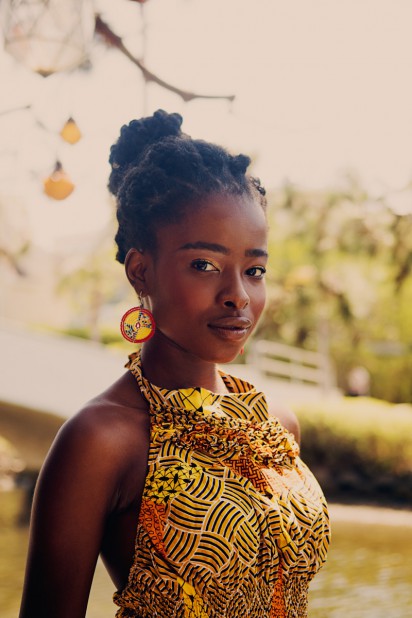 |
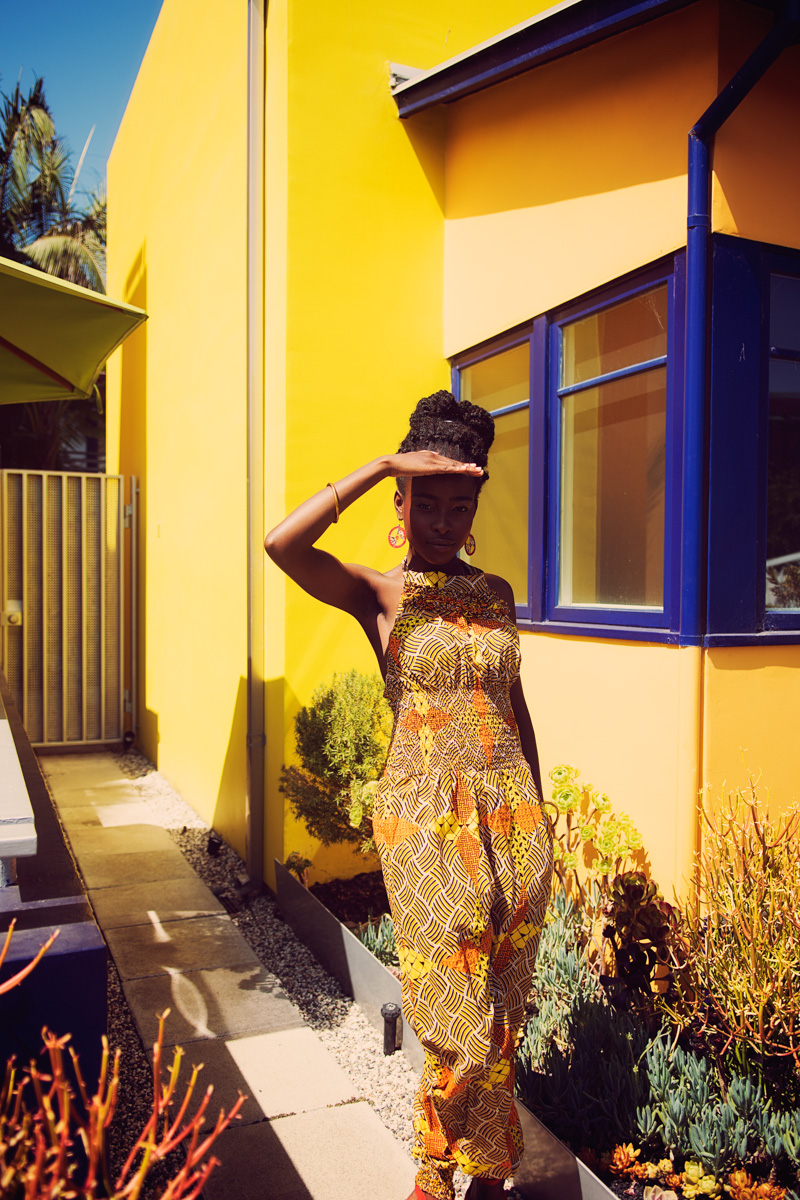 |
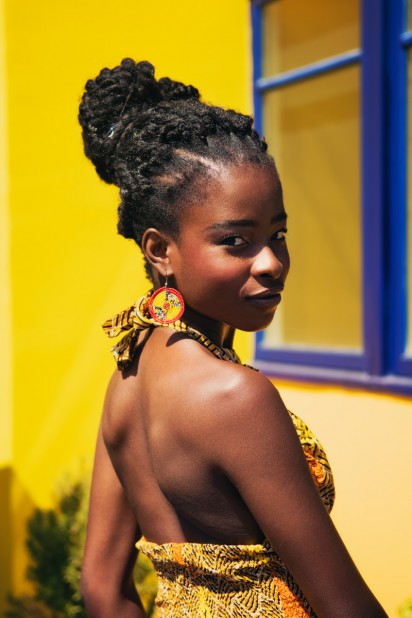 |
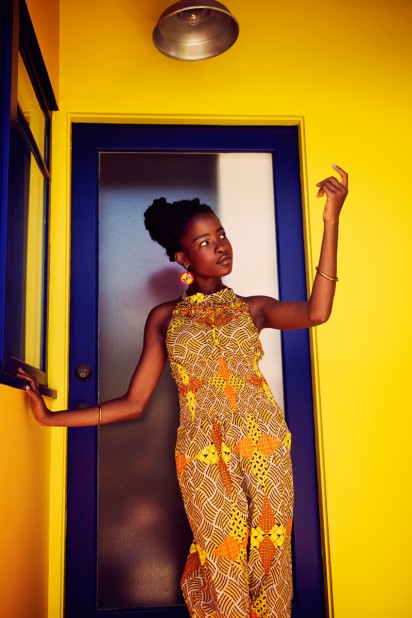 |
|
5. You are the first ever Youth Poet Laureate recipient, how did this come about, the process, and what has this honor meant to you? I served as Youth Poet Laureate of Los Angeles and then the West. I was a finalist for the first ever National Youth Poet Laureate position by being the ambassador for the West. After around a year, I sent in a completed application, explaining the work I’d accomplished as laureate in both roles for the past few years. I found out I was one of the top two finalists in the Spring, and in April at Gracie Mansion it was announced that I’d won. It is such an honor; I love being laureate because I get to combine my passion for poetry, people, and social justice. It’s so exciting to help give youth the platform and access they need to be rising voices in the literary world.
6. Who are your mentors/ role models? Maya Angelou is my queen. Everything she stood for, and how she did it, informs how I want to be both a good poet and a good person. Of course my role model is also my mom, who works hard as a single mother at a Watts school to educate the students in that community. I love her so much. And I have a phenomenal mentor, Dinah Berland, who is also a poet. We take walks along the beach and write together, and she was able to come with me to D.C. when I spoke at the Library of Congress last week (it was the first time they had the youth poet open for the Poet Consultant). What a full circle moment!
|
7. Your latest project Generation Empathy is a 360 virtual reality experience for femme world changers- Tell us more. This year I became enraptured with the idea of virtual reality as a form of empathy-building. I also saw how rarely are young women and girls the focus of such exploits–there’s some great examples, like Jessica Billhart, but since women, and especially women of color, face impediments in the tech industry, we don’t see the representation we need in the technological realm of virtual reality storytelling. So, with an OZY Genius Grant, this summer I went around the country documenting the lives of femme-identified change-makers. I hope to tell a national story through the powerful lens of gender, race, identity, and social change. I can’t tell you too much before the release, but it features girls from New York to Oahu, and our girls are poets, young politicians, doctors-to-be, and filmmakers.
8. You are quite a fashionista. How does fashion help you express yourself? What is your style and name some of your favorite designers? My body is a canvas and fashion is the paint. Through my fashion, and the way I wear my hair, I can pay homage to my black heritage, to my sociopolitical beliefs, and my personality. I think especially for women, when our outward appearances can be so heavily scrutinized, it is always rejuvenating to see women of different shapes rocking fashion that speaks to who they are on the inside. There’s a way in which you can project the beauty of women and girls not through how she looks, but the decisions and choices she makes in how, when, and why she wants to present her inimitable self.
|
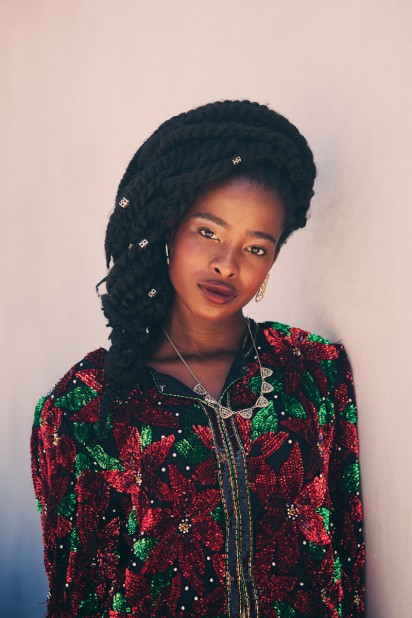 |
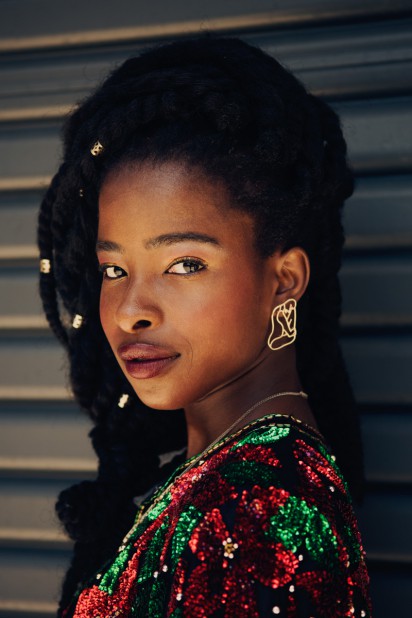 |
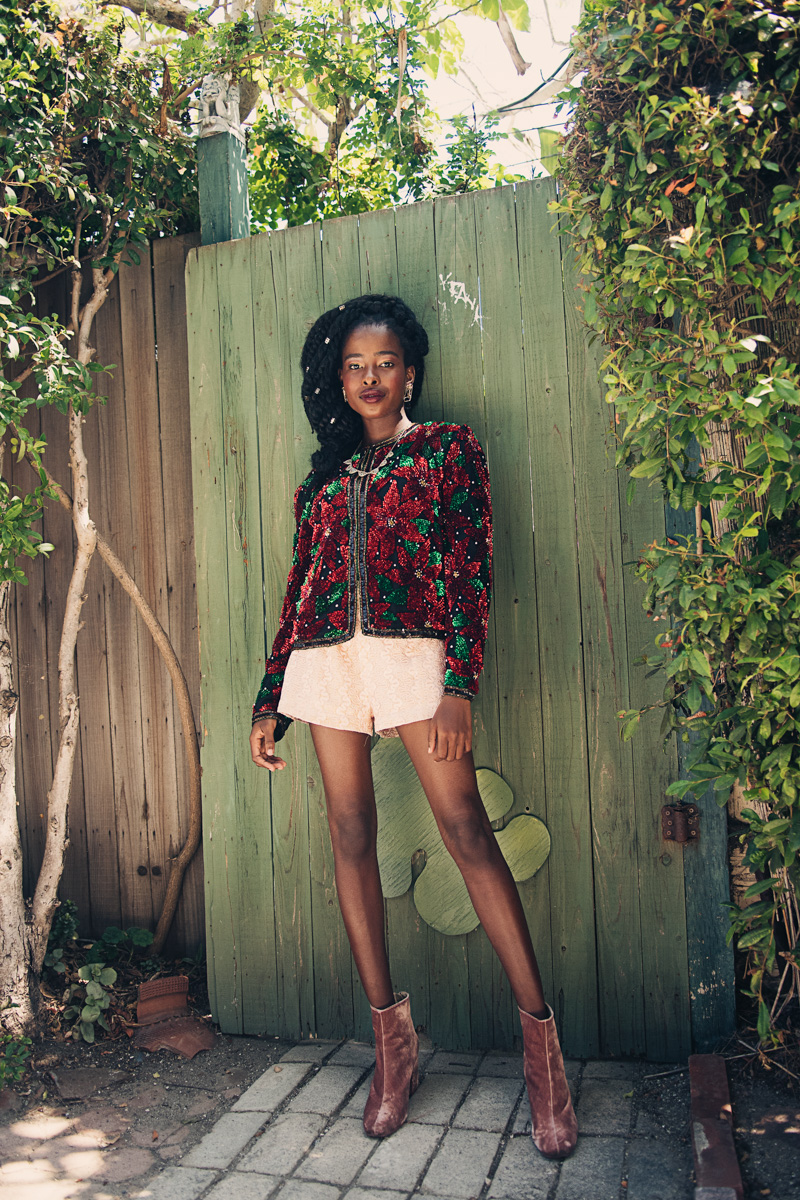 |
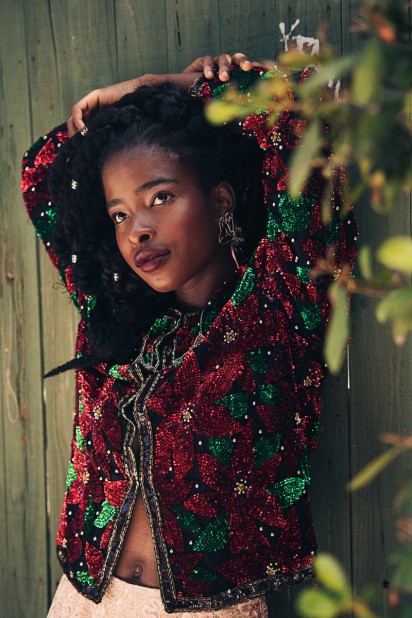 |
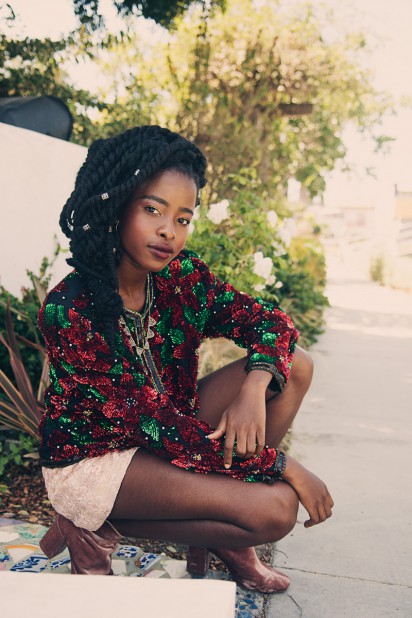 |
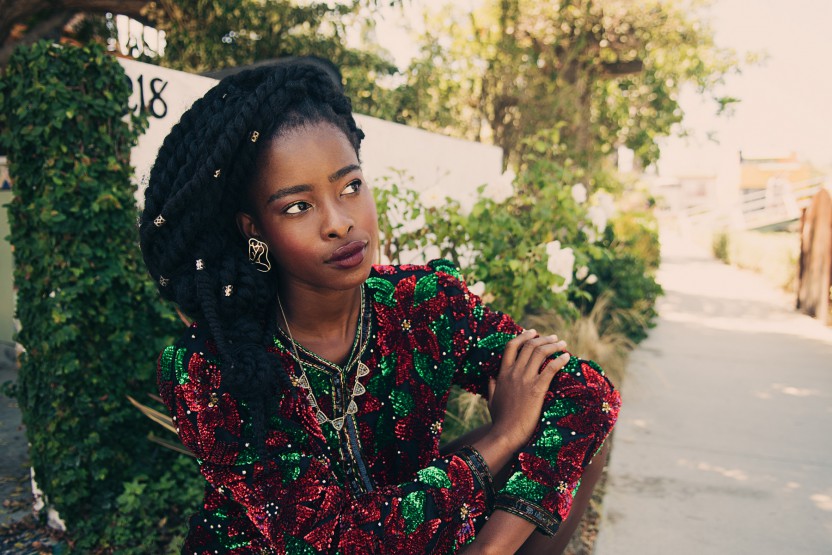 |
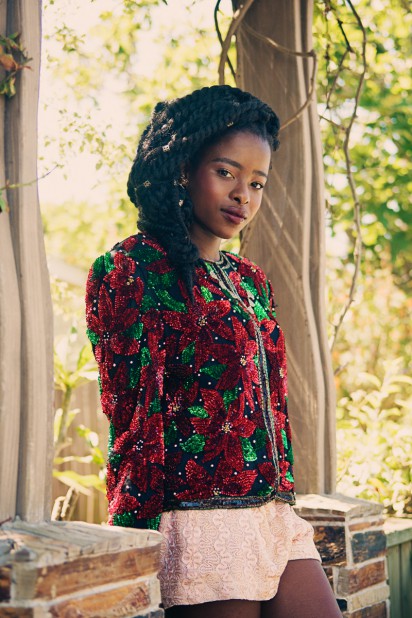 |
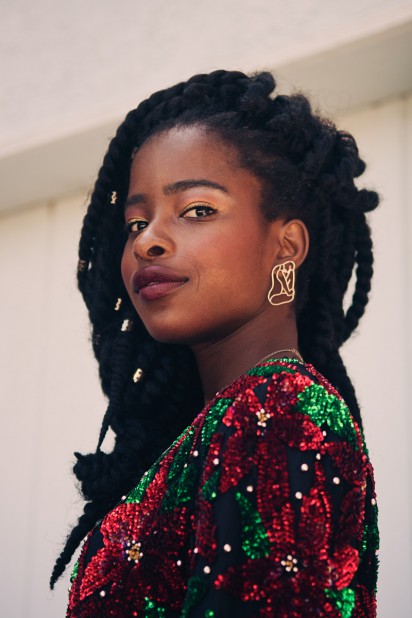 |
| 9. What has been your biggest challenge and how did you overcome? Being a spoken word poet with a speech impediment comes with its own bundle of challenges. Often I’ll be preparing to read a poem and think–well, there’s a word I’m going to have difficulty saying. Should I change it? I found it’s about staying true to myself and not compromising my respect for my voice for anything. If someone can’t understand what I’m saying, I’m going to say it anyways–they can look up the text later! |
10. What’s next for Amanda Gorman?
College! I’m trying to keep myself grounded at school. I don’t want to slack of on my studies just because I’m Youth Poet Laureate. I’m also hoping to publish some new poetry and other writing soon, branching out into other forms. My twin sister Gabrielle and I also started a YouTube channel, Gorman Girls, you can subscribe here.
You can see more of Amanda’s writings & Anna Zhang’s photography at Pulse Spikes. |
